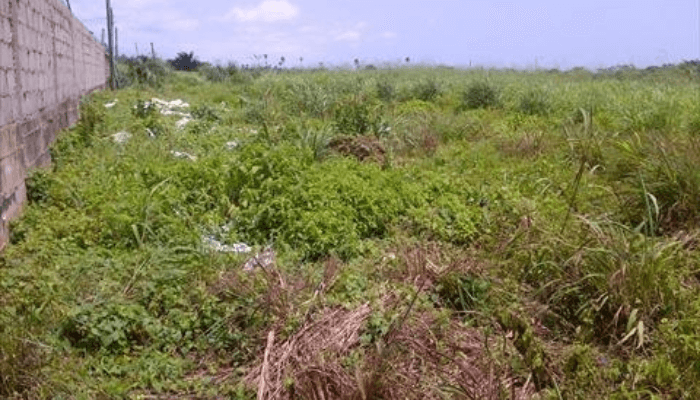Economic experts have advised the federal government to optimize its land assets for increased revenue generation and economic growth.
This was discussed during a webinar on real estate outlook and projection for 2022 themed regulation, affordability, and capacity organized by the real estate group of the Lagos Chamber of Commerce & Industry (LCCI).
It was also unanimously agreed that the country’s real estate sector required proper regulation and increased partnership between the public and private sectors to flourish.
Ayo Teriba, chief executive officer, Economic Associate Company, explained that in different countries, 60 percent of national assets are made up of structured buildings Nigeria inclusive, and this will serve the government well in terms of revenue generation rather than increased taxation.
He advised that the federal government needs to look towards its portfolio of national assets to unlock liquidity and achieve an all-inclusive economy.
“Now is the right time to rely more on financialization targets critical to the sector in line with a growing global preference for exploiting assets as portfolios for capital gains than outputs as transactions for-profits,” he said.
He added that this could be achieved by valuation, securitization, liberalization, and commercialization of these physical, intangible, or corporate assets.
Adeniyi Akinlusi, director, Greenstem Advisory said to reduce Nigeria’s housing deficit there is a need to increase the supply of affordable homes, which could be challenging seeing that cost of building homes has skyrocketed.
He advised that the government can optimize public-private partnerships to address this by implementing a framework similar to the infrastructure tax credit scheme, whereby companies commit funds to building homes which the government sells and gets the profit.
“This way the government partners with the private sector to build the economy, reduce Nigeria’s housing deficit, and generate revenue,” he said.
Akinlusi added that the closing cost for activities in the sector is quite high and affects the possibility of providing affordable homes to people.
He urged the government to reduce the cost associated with documentation, insurance, surveying, etc. in order to help stakeholders effectively provide affordable housing units in the country.
In his remarks, Michael Olawale-Cole, LCCI president said the sector is projected to grow significantly riding on the back of a huge and growing population, government’s efforts to bridge the housing deficit gap, rising urbanization, a growing number of High-Net-Worth Individuals investing in real estate, among other things.
He said the private sector is better positioned to invest in the real estate sector with the provision of the right business environment in terms of regulations and policies and interventions.
“We urge the government to deploy more technology in land documentations and create a platform that hosts the identification of property, ownership, and transactions made on them, this will make the sector more regulated and attract more investments,” he said.

Toke Benson-Awoyinka, Special Adviser to State Governor on Housing, Lagos State, said that the country’s real estate sector which experienced an unprecedented shift due to the pandemic has a lot of untapped potential for FDI inflow, revenue generation, and economic development.
Benson-Awoyinka said the Lagos state government is making deliberate and strategic efforts to boost operations and ensure proper regulation in the sector for effective gain optimization such as the signing of the real estate law in Lagos state.
“The law among other things seeks to regulate the business transactions in the sector curb fraudulent practices among real estate practitioners in the State and also provide value for money for the residents,” she said.
The SA urged stakeholders to register with the Lagos State Real Estate Regulatory Authority (LASRERA) so that relevant information can be captured to generate credible data for industry activities useful to the country and to investors.
In his remarks, Michael Olawale-Cole, LCCI president said the sector is projected to grow significantly riding on the back of a huge and growing population, government’s efforts to bridge the housing deficit gap, rising urbanization, a growing number of High-Net-Worth Individuals investing in real estate, among other things.
He said the private sector is better positioned to invest in the real estate sector with the provision of the right business environment in terms of regulations and policies and interventions.
“We urge the government to deploy more technology in land documentations and create a platform that hosts the identification of property, ownership, and transactions made on them, this will make the sector more regulated and attract more investments,” he said.
Toke Benson-Awoyinka, Special Adviser to State Governor on Housing, Lagos State, said that the country’s real estate sector which experienced an unprecedented shift due to the pandemic has a lot of untapped potential for FDI inflow, revenue generation, and economic development.
Benson-Awoyinka said the Lagos state government is making deliberate and strategic efforts to boost operations and ensure proper regulation in the sector for effective gain optimization such as the signing of the real estate law in Lagos state.
“The law among other things seeks to regulate the business transactions in the sector curb fraudulent practices among real estate practitioners in the State and also provide value for money for the residents,” she said.
The SA urged stakeholders to register with the Lagos State Real Estate Regulatory Authority (LASRERA) so that relevant information can be captured to generate credible data for industry activities useful to the country and to investors.
#FG #Land #economic #homes #real estate
Source: businessday





